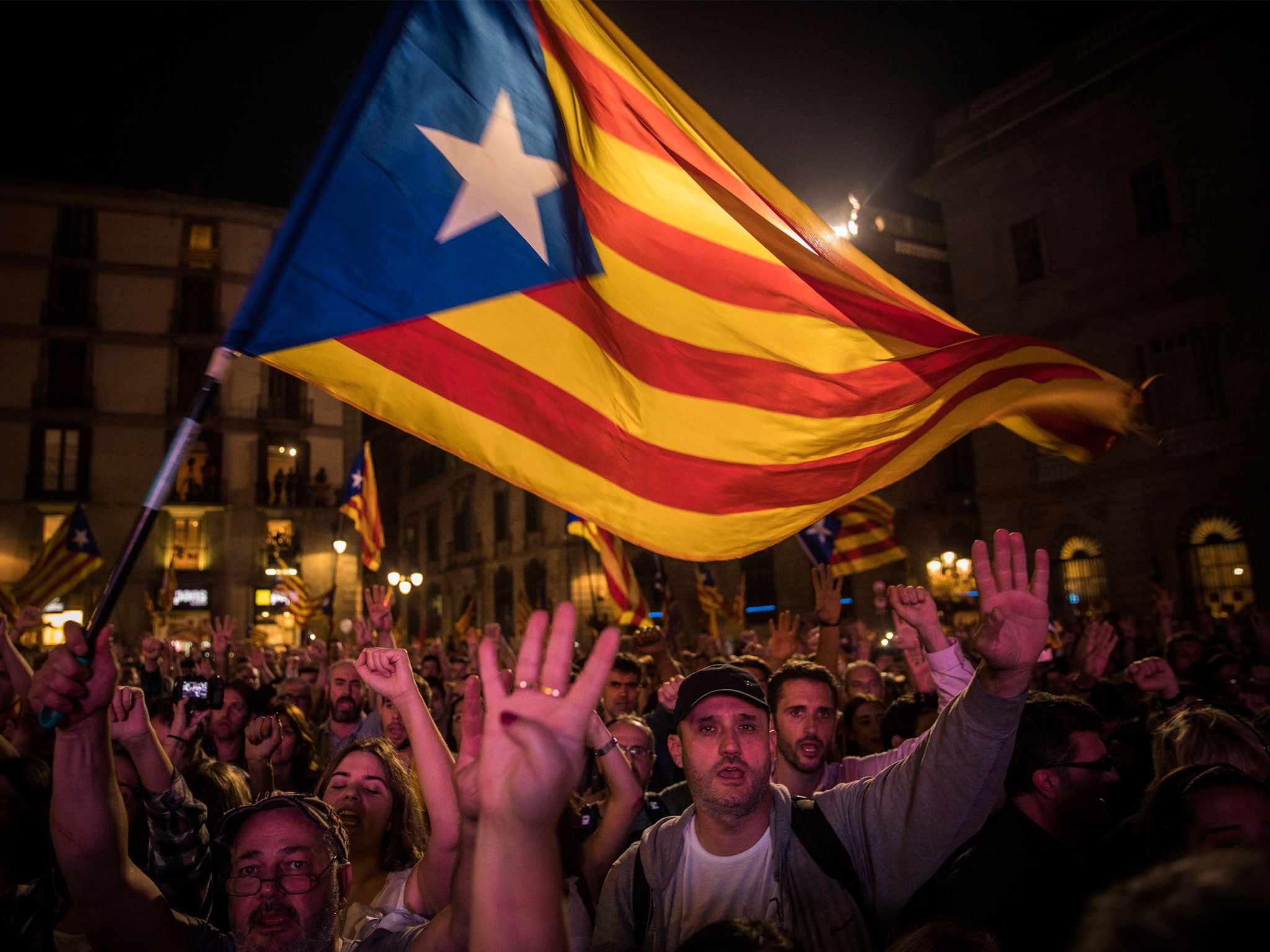Catalonia's dismissed deputy president rejects Spanish government's 'coup d'etat'
'The president of the country is and will remain Carles Puigdemont'

Your support helps us to tell the story
From reproductive rights to climate change to Big Tech, The Independent is on the ground when the story is developing. Whether it's investigating the financials of Elon Musk's pro-Trump PAC or producing our latest documentary, 'The A Word', which shines a light on the American women fighting for reproductive rights, we know how important it is to parse out the facts from the messaging.
At such a critical moment in US history, we need reporters on the ground. Your donation allows us to keep sending journalists to speak to both sides of the story.
The Independent is trusted by Americans across the entire political spectrum. And unlike many other quality news outlets, we choose not to lock Americans out of our reporting and analysis with paywalls. We believe quality journalism should be available to everyone, paid for by those who can afford it.
Your support makes all the difference.Catalonia's dismissed deputy president has said he rejects what he called a "coup d'etat" by the Spanish government.
Oriol Junqueras went on to say "the president of the country is and will remain Carles Puigdemont."
He made the remarks in an article for Catalan newspaper El Punt Avui, which he signed "Vice President of the government of Catalonia."
Mr Puigdemont and Mr Junqueras were dismissed by the national government in Madrid.
Spanish Prime Minister Mariano Rajoy took direct control of the region after it voted in favour of an independent republic.
Mr Rajoy also announced the impending disollution of the Catalan parliament, the closure of Catalan embassies abroad and called for regional elections.
He said the declaration of independence "not only goes against the law but is a criminal act."
Mr Puigdemont and the 12 members of the Catalan Cabinet now will no longer be paid and could be charged with usurping others' functions if they refuse to obey.
There was no immediate sign that top Catalan officials would do so, or comply with the orders.
However, the battle around Catalonia's future is far from over.
Madrid's move to take away Catalonia's regional powers was sure to be seen as a humiliation and a provocation by Catalans and a backlash was expected, with planned street protests and the possibility that regional government workers could follow a policy of disobedience or non-cooperation.
Furthermore, regional elections on 21 December could deliver a steadfastly pro-independence Catalan parliament, even if recent polls have suggested the region of 7.5 million people is roughly evenly split on secession.
Many Catalans strongly oppose independence and hundreds of thousands of so-called unionists are expected to stage a large-scale protest in Barcelona on Sunday.
A spokesman for Spain's prosecutor's office, meanwhile, said it would seek to bring rebellion charges against those responsible for the Catalan independence vote.
Join our commenting forum
Join thought-provoking conversations, follow other Independent readers and see their replies
Comments